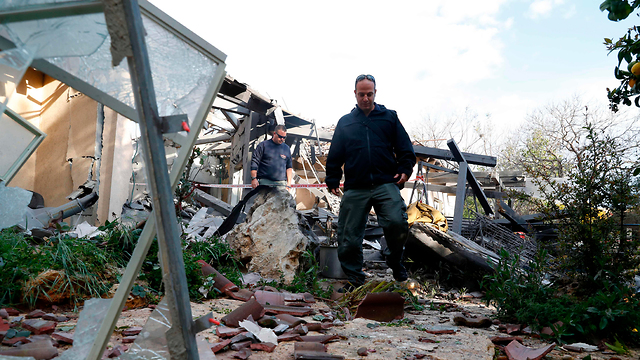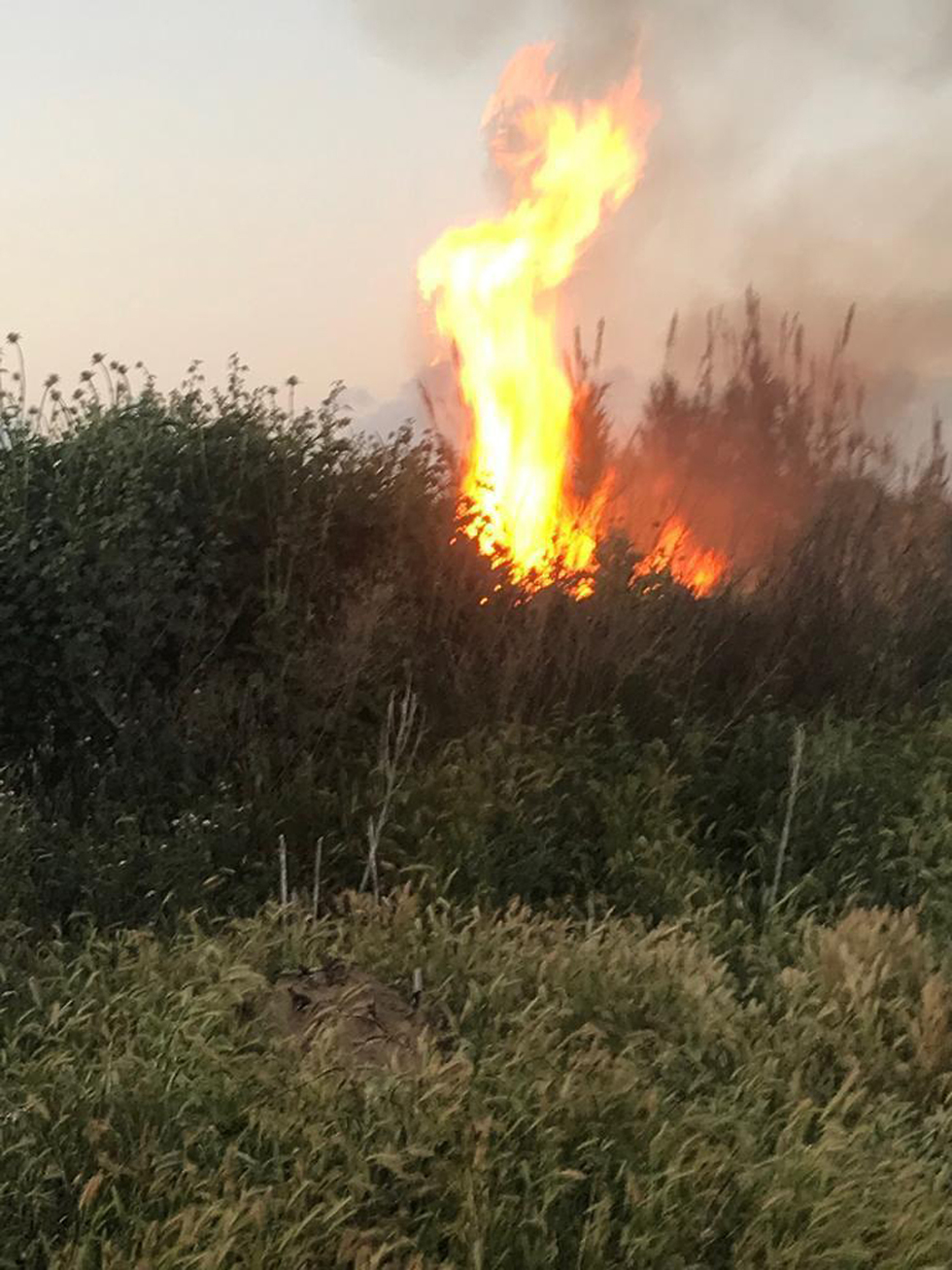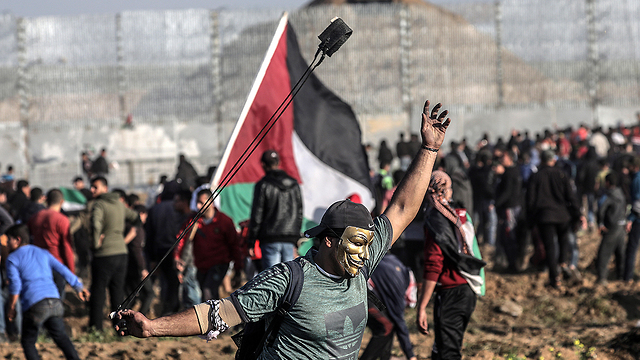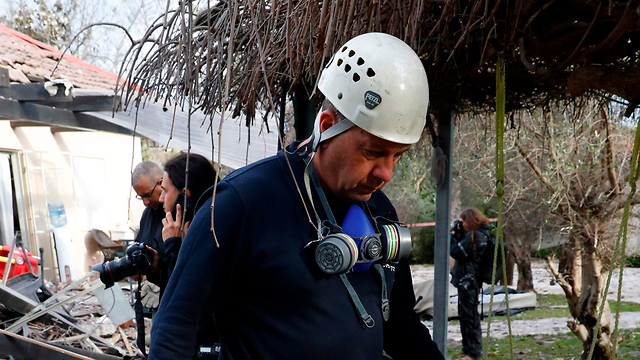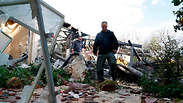
Unanticipated Gaza rocket leaves Israel with tough choices
Analysis: A long-range rocket attack covering some 120km caught Israel by surprise; the rocket, apparently launched by Islamic Jihad, hit an area not believed to be protected by the Iron Dome missile defense system; now Israel must deliver a harsh response in a bid to restore some of its shattered deterrence without setting the West Bank alight too
The rocket launch early Monday morning, that hit a house in the Sharon region, took Israel completely by surprise. It was carried out in order to cause casualties. The large rocket, apparently an M-75 that according to the IDF was manufactured by Hamas, was fired at dawn, when people were still sleeping. The rocket was fired to its maximum range (80-140 km) towards an area of Israel that the people who launched it believed was not protected by the Iron Dome missile defense system.
The rocket, which probably carried a warhead containing dozens of kilograms of explosives, hit the center of the living room. Fortunately, the family members were sleeping in inner rooms, and therefore escaped serious injury. The building, made of reinforced concrete with large windows and openings, also helped to dilute the impact of the blast.
The rocket was a copy of an Iranian Fajr-5, which has a range of 75 km. When produced in Gaza (under Iranian supervision) it is called the M-75. Extending the length of the rocket by several dozen centimeters allows it to contain more fuel and increases its range by kilometers.
Bracing for West Bank strife
Initially it seemed that Islamic Jihad had fired the rocket, but an IDF investigation revealed that it was in fact Hamas. Ostensibly, this a move that runs contrary to the interests of the organization, which is hoping to get receive aid relief from Israel, Egypt and Qatar both for itself and the residents of Gaza. An Egyptian intelligence delegation was supposed to arrive in Gaza on Monday, to renew negotiations for long-term calm that would stabilize the situation on the Gaza border.
But Hamas is not interested in a fair deal, but rather one in which the other side totally capitulates to its demands and conditions without it having to cede even a little of its "resistance." Hamas - and Islamic Jihad with which it is coordinating - want to continue harassing Israel and disrupting Israeli life in order to differentiate themselves from the position taken by Palestinian President Mahmoud Abbas of "popular resistance" and less violence.
Hamas is unwilling to commit itself to anything, primarily because Israel has lost its deterrent power in Gaza. The organization is certain that until election day on April 9, Israel will satisfy itself with a minor response to the rocket fire - and in the meantime it can use the election period and Benjamin Netanyahu's fear of Israeli losses to extort concessions from Jerusalem without giving anything in return.
Israel's deterrence has been severely damaged, and Jerusalem cannot allow this state of affairs to continue. In any event, an immediate response would be ineffective and fail to sufficiently hurt Hamas and Islamic Jihad - and it is better to prepare for a major confrontation before carrying out any response.
This includes mobilizing reservists, extensive deployment of the Iron Dome missile defense and other active systems, as well as bringing in reserve ground forces should Israel need to enter the Gaza Strip in order to paralyze the rocket fire and the rocket workshops, and destroy as much as possible of the terror groups' tunnels and bunkers.
Israel must also be equally prepared to stop riots and mass disturbances that could break out in the West Bank. All of this needs time – albeit not very much - to mobilize troops, call up reservists and make logistical preparations, which could be completed by the time the prime minister lands in Israel on Tuesday morning.
The Egyptians may well intervene in the middle of all this in an effort to stop Israel, and that too must be taken into account. Once the prime minister returns to Israel and convenes his security cabinet, one must hope that the decisions taken are balanced but firm, and will not be influenced by the election campaign, but are aimed at preventing terrible events such the ones of Monday morning.










